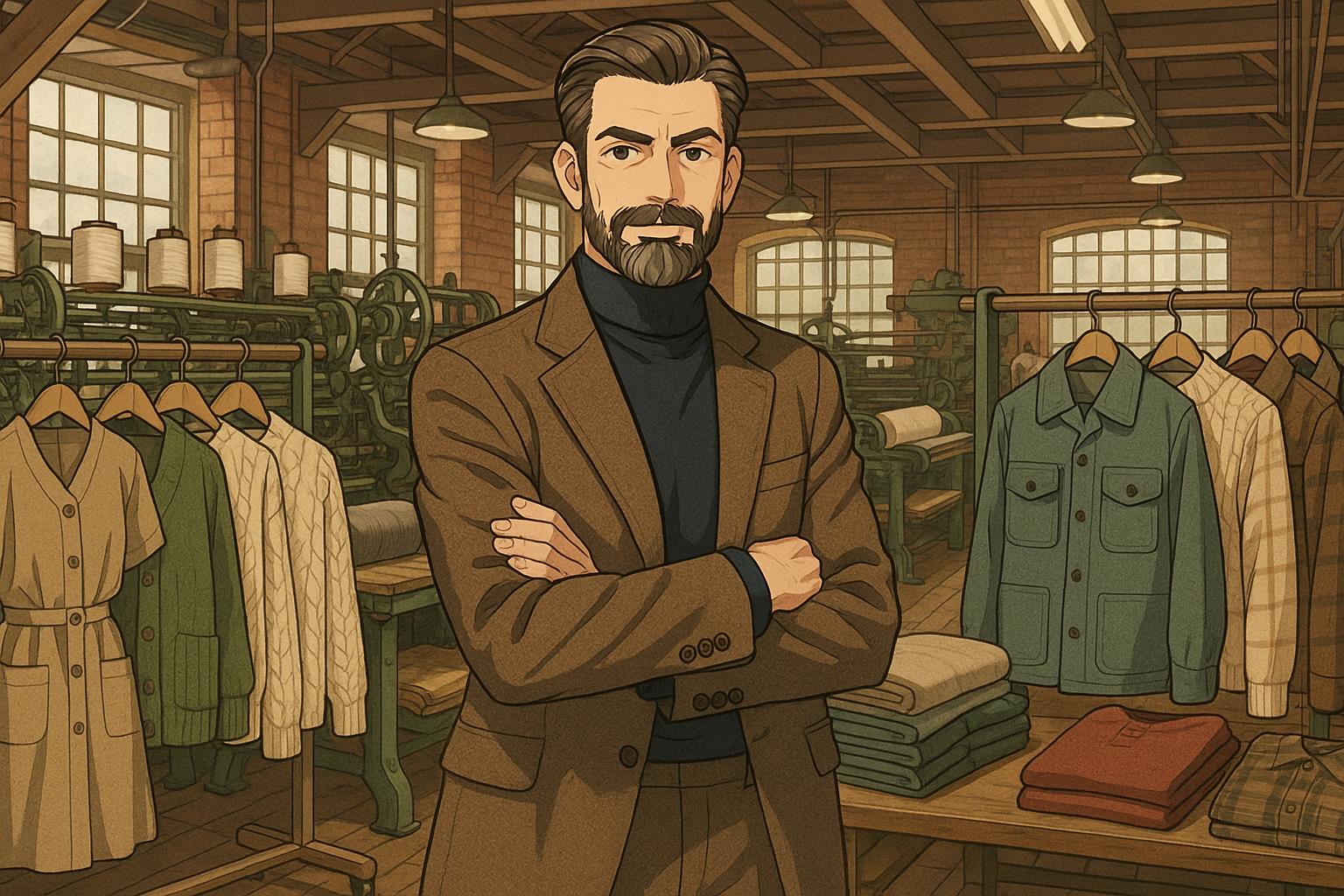Patrick Grant stands as a formidable voice against the tide of fast fashion, championing a shift towards sustainable practices and mindful consumption in the clothing industry. A renowned judge on "The Great British Sewing Bee" and a veteran retailer with two decades of experience, Grant is not merely an observer; he embodies his ethos through the businesses he operates. At Cookson & Clegg, the Blackburn factory he acquired in 2015, he illustrates his commitment to local production, showcasing clothing items whose origins he proudly traces back to various UK regions.
In his book "Less," Grant advocates for a more conscious approach to consumption, urging readers to reconsider the sheer volume of goods they purchase. Subtitled "Stop Buying So Much Rubbish: How Having Fewer, Better Things Can Make Us Happier," the book serves as an anti-shopping manifesto that challenges the prevailing fast fashion paradigm – one that he criticises as a commercial strategy to encourage unnecessary spending.
Grant's business ventures, most notably Community Clothing, reflect his conviction that quality should supersede quantity. Established as a for-profit social enterprise, Community Clothing aims to create jobs and bolster the UK textile industry, reviving areas that have historically reliant on manufacturing. Here, all clothing is made domestically, adhering to Grant's philosophy that local production can be both profitable and beneficial for communities. His initiative recently launched a crowdfunding campaign, an effort to further galvanise support for sustainable British apparel.
Critically, Grant articulates a broader disillusionment with the fashion industry's relentless push for newness. "The whole idea of fashion with a big ‘F’ is a deliberate act on the part of commercial businesses to encourage people to buy things they don’t need,” he states candidly. He believes this approach has led to what he terms the "acceleration and shitification" of the consumer landscape, where quality is sacrificed for fleeting trends. His business model, devoid of sales and seasonal collections, focuses instead on timeless, high-quality basics, reminiscent of brands like Sunspel but at a more accessible price point.
Despite his staunch stance against consumerism, Grant's own relationship with clothing is one of pragmatism and simplicity. He typically dons a navy crew neck and Community Clothing trousers, prioritising durability and ease over extravagance. "Most days I just have fresh pants and socks, and the same stuff as yesterday," he quips, highlighting his preference for a uniformed approach to dressing that eschews frivolity.
Reflecting on his past, Grant has a storied history with fashion, once enamoured with high-end pieces from designers like Issey Miyake and Jean Paul Gaultier in his youth. However, his current philosophy reflects a shift towards sustainability, where the emphasis is on repair and longevity. He offers five practical tips for consumers seeking a more sustainable wardrobe: buying fewer items, opting for preloved clothing, upcycling, and minimising washing, all of which reduce textile waste and promote responsible consumption.
Grant’s critique is not merely aimed at newcomers in the fast fashion arena, such as ultra-fast fashion brands like Shein and Temu, which churn out countless low-value products annually. He also targets established retailers such as Marks & Spencer, who he believes have lost their focus on product quality in favour of marketing. "They’ve decided that the way to compete is to out-advertise and out-market people," he asserts, positioning Community Clothing as a counter-narrative that prioritises craftsmanship and accessibility.
Within this framework, the environmental stakes are significant. Grant's insistence on sustainability includes an initiative to grow flax and woad for linen and natural dyes, confronting the wasteful practices of the mainstream fashion industry directly. He strives to create a regenerative system where local resources and labour are adequately valued, paving the way for a future less reliant on synthetic materials.
In navigating the complexities of wealth and privilege, Grant acknowledges that his advocacy for sustainable practices comes from a position of relative comfort, having been educated in private schools and holding valuable property. He recognises this privilege, yet passionately believes in using his resources to effect positive change. "We have to try to find a way to reverse the enormous wealth inequality we’ve created," he insists, underscoring his commitment to purpose-driven work.
Ultimately, Grant's multifaceted persona—as both a pragmatist and a passionate advocate for change—crafts a compelling narrative around the future of fashion. His focus on sustainability, local production, and less consumption serves not just as a business model, but as a broader societal call to action, inviting consumers to rethink their consumption habits and invest in quality over quantity.
Reference Map
- Paragraphs 1-3: [1], [2], [4], [7]
- Paragraph 4: [3], [6], [5]
- Paragraph 5: [6], [3]
- Paragraph 6: [2], [4], [5]
- Paragraph 7: [4], [6]
- Paragraph 8: [1], [3], [7]
- Paragraph 9: [3], [2]
- Paragraph 10: [4], [5], [7]
Source: Noah Wire Services
